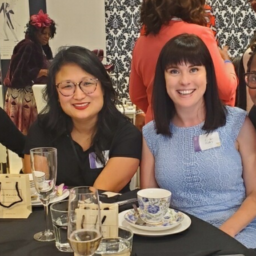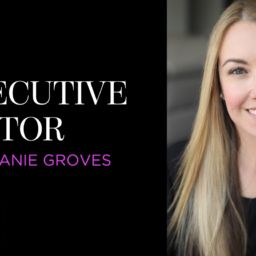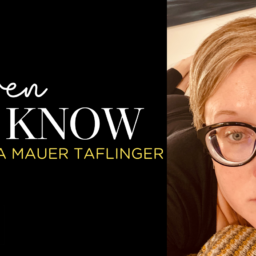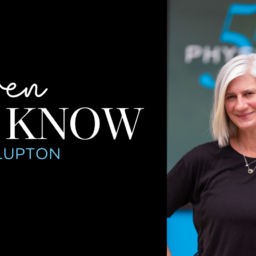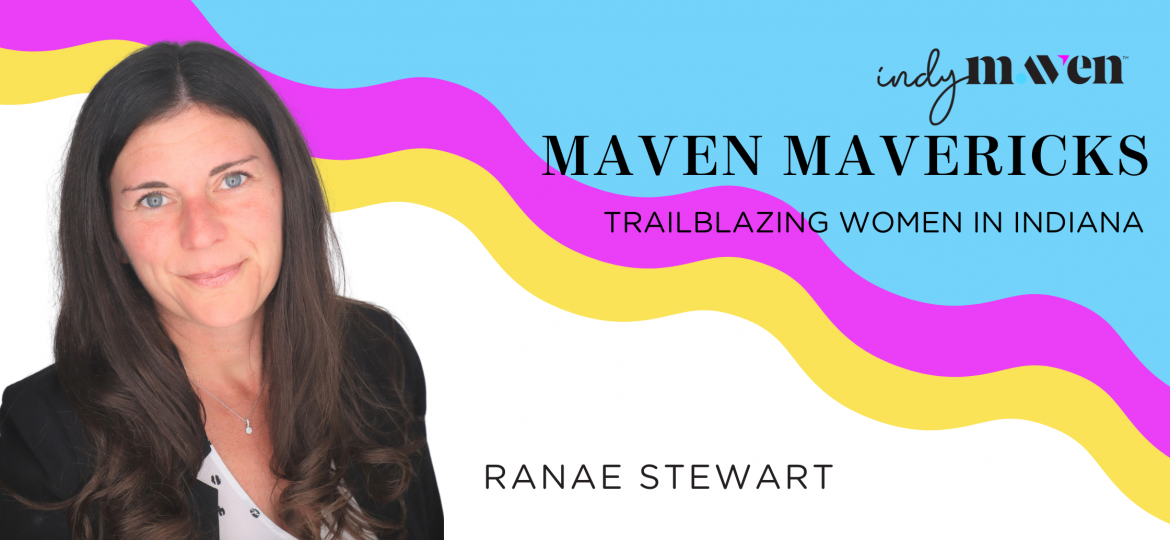

In the U.S. as of 2024, women fill only 33% of positions in manufacturing and only 26% of industry leadership positions. According to a study done by the Women in Manufacturing Association, “Female leadership progress is particularly lacking in the sectors of Agriculture (17%), Aerospace and Defense (18%), and Automotive (19%).”
As the first female leader of the Purdue Manufacturing Extension Partnership (MEP), an organization that annually supports over 800 manufacturers across the state of Indiana, Ranae Stewart is certainly a shining beacon of how women can lead with grace and strength and make progress for female leadership in very male-dominated spaces.
STEWART’S JOURNEY TO APPRECIATE MANUFACTURING
Originally born in Hawaii, Ranae Stewart came to Indiana with her family and grew up in the Hoosier state. “I love being a Hoosier. I love the Midwest culture,” she shared. Stewart held a close relationship with her father growing up and describes him as her biggest mentor. In fact, she followed in his footsteps when she decided to attend the Purdue University Daniels School of Business.

She engaged in an internship at his company when Stewart was in college and they would drive from Lafayette to Carmel together. “I would learn so much just listening to his conversations with his employees on the drive. It was invaluable to me learning how he would work through things with his employees.”
“To this day, he’s usually the first person I call when things are happening—good or bad—and he just gives me good advice. And he tells everybody that he taught me ‘everything she knows.’” Stewart shared with a sly smile.
Upon graduating, Stewart sat down with one of her professors to get advice about her impending job search. She recalled that the trusted advisor said, “Don’t settle. I know it’s tough, and I know you really want to get a job, but do what you want to do.” That patience paid off, and Stewart earned a role in a small B2B marketing agency that worked with manufacturers. This was her first exposure to the sector, and working directly with manufacturers in her role, Stewart said she “really came to understand the importance of manufacturing to the state.”
With Indiana ranked second in the U.S. in the overall production of automobiles and 30% of our GDP coming from making and moving goods, there is a significant opportunity to help our economy and people in our communities by supporting the success of manufacturers here.
Stewart soaked up the knowledge and appreciation she gained from this first role out of college, and took that with her throughout her career.
LEARNING HOW TO LEAD… AND HOW NOT TO LEAD
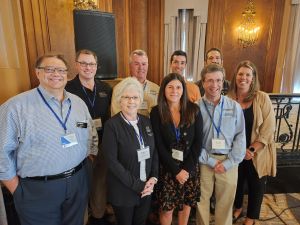
Due to the economic downturn that resulted from the 9/11 terrorist attacks, Stewart ended up leaving the marketing firm and accepting a marketing role at a law firm with an office in Indianapolis.
“That’s really where I grew up. I learned a lot. I had a lot of great mentors there and a lot of great friends there.” Stewart smiled as she described Carol Battistini, her boss for the majority of the time she worked at the firm. “She was my favorite boss I’ve ever had because I learned so much from watching her. She took me under her wing and she was a really good mentor for a young woman,” Stewart said.
When asked what the most important thing she learned from Battistini was, Stewart shared, “Keep calm and choose your battles wisely. That has really guided me a lot through my career. She was very deliberate—a quiet problem solver.”
10 years into her role in the firm, Stewart had an experience with one of the female attorneys that shaped her in a very different way.
“[The attorney] saw a marketing piece I had proofread, and one of the case cites was incorrect. Not being an attorney, I didn’t know enough to catch the mistake. She took the time to take me into her office to belittle me and be cruel. I walked out of her office and had two thoughts. One, it could have been such a different conversation in coaching me, but that’s not the route she took. Two, I am not doing this.”
So impacted by this negative experience, Stewart resigned from her role even though she didn’t have another job lined up. Taking some time to consider her next step, Stewart’s top priority was finding a job where she could look forward to going to work every day again. She thought, “It would be neat to work for my alma mater. Then I found the Purdue MEP program and wanted to get back to working in manufacturing.”
GROWING MANUFACTURING TALENT AND HELPING OTHERS THRIVE
One of Stewart’s proudest accomplishments during her professional journey with the Purdue MEP was the development and launch of the organization’s Manufacturing Skills for Success program.
“Many adults don’t have the ability to step away from their responsibilities to complete a two-year or 12-16 week program,” so Stewart led the charge to create a 10-day bootcamp tailored to adult workers, helping them to achieve higher level jobs in manufacturing and earn more for their families.
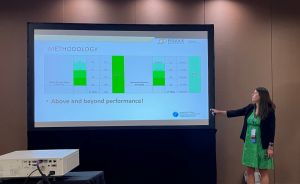
Through the curriculum development process, Stewart spent an extensive amount of time gaining feedback from participants. One particularly impactful session she recalled was with a group of women through the YWCA, and she noted that none of the women she spoke with had any previous exposure to manufacturing. “They didn’t know what types of jobs they’d be trying to find. So we laid out prospective employers, types of jobs, potential wages—the potential trajectory for someone for a career in manufacturing,” essentially opening up an entire job sector of opportunity to this group and those to come.
Stewart went on to point out, “The other thing that is important to note, as we look at the workforce shortage and consider competing industries such as food and retail: sometimes those wages are comparative to what manufacturers offer in an entry-level role, but the trajectory for the career pathways [in manufacturing] are far more advanced and offer the opportunity for advancement without a 4-year degree.”
With this in mind, Stewart and her team wrote the curriculum for the program with an 8th-grade math and reading equivalent, and ensured that participants do not have to be a high school graduate to complete the course.
Since the program’s official launch in 2018, the program has trained over 1,800 individuals in a variety of settings ranging from charter high schools to rehab facilities to correctional facilities. “Spending time with participants in that program has been extremely rewarding and seeing how the outcome of this program changes the outlook on their future,” Stewart shared.
BEING ONE OF VERY FEW WOMEN
In 2024, Stewart earned the highest leadership position in the organization as the new Senior Executive Director of the Purdue MEP. It’s notable that she is one of few women to do so within the national network, which hosts MEP Centers in all 50 states and Puerto Rico.
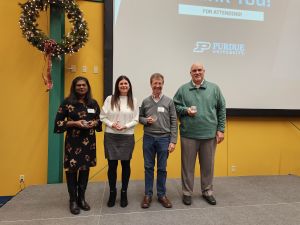
Stewart recalled the first time she attended a national event where various Center leaders came together. She had only been in her role for a few weeks and she walked in the room and there were only a handful of other women there. “It was very intimidating being brand new walking into this room still learning about the MEP National Network and most of the individuals in that room had worked together for some time. It wasn’t that everyone wasn’t welcoming, I just wasn’t part of the ‘in crowd,’ but I wore them down over time,” she shared with a humble smile.
Stewart pointed out, “You go to something like that and the tendency is to find the other women in the room because it’s comfortable. But I forced myself out of that comfort zone and I’d sit down and insert myself into the conversation. And I’ve learned a lot from those individuals over time.”
From the impact of that experience, Stewart took it upon herself to intentionally help other women in that situation. “If I’m at an event like that and see someone that’s clearly intimidated and overwhelmed and has the ‘deer in headlights’ look, I try to make that first step to make them feel welcome, understand what their role is, and say, ‘Hey let me introduce you to so and so, I think it’d be a really great connection for you.’”
From a national perspective, Stewart intentionally tries to identify opportunities for other female Center directors to collaborate. “We try to look for opportunities to support one another or partner on items. And also when you have someone newer to the MEP National Network as a woman, make them feel welcome. Sometimes it’s as simple as an email saying, ‘Congratulations! I see you’ve been named a director in such and such state. Please reach out if you have any questions or if I can help you in your new role.’ Essentially communicating to them, ‘You’ve got another friend out there.’”
STEWART’S LEADERSHIP ADVICE
Stewart really enjoys working one-on-one with her teammates and taking on a mentor or coaching role as a leader. She described a poignant leadership learning moment with the Purdue MEP board chair, Susan Carlock. “I’ve learned a lot from her in the short time that I’ve known her—how she connects with people, how she collaborates, how she champions women, and how she approaches conversations.”

“It seems like such a small thing but she reached out to me after I took the leadership role and wanted to have a conversation about continuing on as the board chair, and she just came straight out and said, ‘What can I do better? What can I do differently?’ While I didn’t have any feedback because she’s amazing, ever since that conversation, I do that constantly with my team in our performance reviews. That’s how I end it: ‘What can I do differently to support you?’ If we have an issue that comes up or an opportunity: ‘Is there something I could have done differently through that process?’ It’s been really powerful getting that feedback.”
Stewart also emphasized how important it is to her to showcase healthy boundary-setting around work.
“Wednesdays in my household are Waffle Wednesdays. At 5:00, I’m offline to have waffles with my two teenage boys, and my whole team knows about it. It’s healthy to have some of those things for yourself and it sets the example for your colleagues so that they can have those things in their own lives. It’s really important.”
Waffle Wednesdays sound wonderful. Maybe I’ll integrate that into my own personal development plan. To follow the work of Ranae Stewart and her team, you can find the Purdue MEP on LinkedIn and sign up for their newsletter to stay informed about emerging programs and upcoming events.
All of our content—including this article—is completely free. However, we’d love if you would please consider supporting our journalism with an Indy Maven membership.











